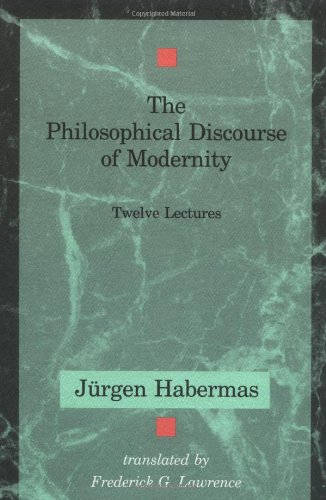The Philosophical Discourse of Modernity download
Par ortiz jerry le samedi, août 6 2016, 09:53 - Lien permanent
The Philosophical Discourse of Modernity. Frederick Lawrence, Jurgen Habermas, Thomas McCarthy

The.Philosophical.Discourse.of.Modernity.pdf
ISBN: 0745608303,9780745608303 | 456 pages | 12 Mb

The Philosophical Discourse of Modernity Frederick Lawrence, Jurgen Habermas, Thomas McCarthy
Publisher: Polity Press
Postmodernism, one might say, is the revenge of the philosophical discourse of modernity upon Marixsm for neglecting problems in the philosophy of history. 294-326, from The Philosophical Discourse of Modernity (trans. [1] Jürgen Habermas, “An Alternative Way out of the Philosophy of the Subject: Communicative versus Subjective-Centered Reason,” pp. Horkheimer, Dialektik der Aufklärung, cit., pp. The Philosophical Discourse of Modernity: twelve lectures, Frederick Lawrence (trans.). Cambridge, MA: MIT Press, 1990. Cambridge, MA: The MIT Press, 1987. The Philosophical Discourse of Modernity; Moral Consciousness and Communicative Action. For short accounts relevant for the present purpose, see Habermas, Jurgen, The Philosophical Discourse of Modernity, translated by Frederick G. Everyday life is lived in the medium of cultural form. Title: The Philosophical Discourse of Modernity. Habermas, The Philosophical Discourse Of Modernity: Twelve Lectures, Translated by Frederick Lawrence. Thus, on this line of reasoning, in the early twentieth century German philosopher Martin Heidegger theorized modernity as a huge system of “enframing” that reduced things to mere objects and functions available for human use. <>The obvious starting point for the analysis of the Habermas – Derrida debate is Habermas' 1987 book The Philosophical Discourse of Modernity in which one 'lecture' and one 'excurses' deal with Derrida.